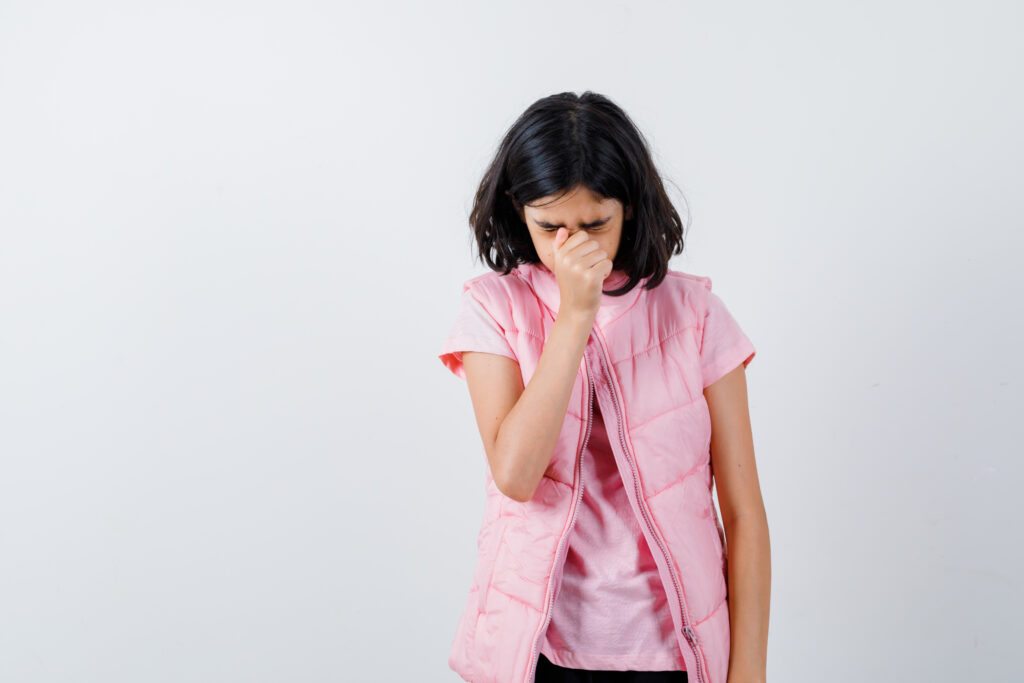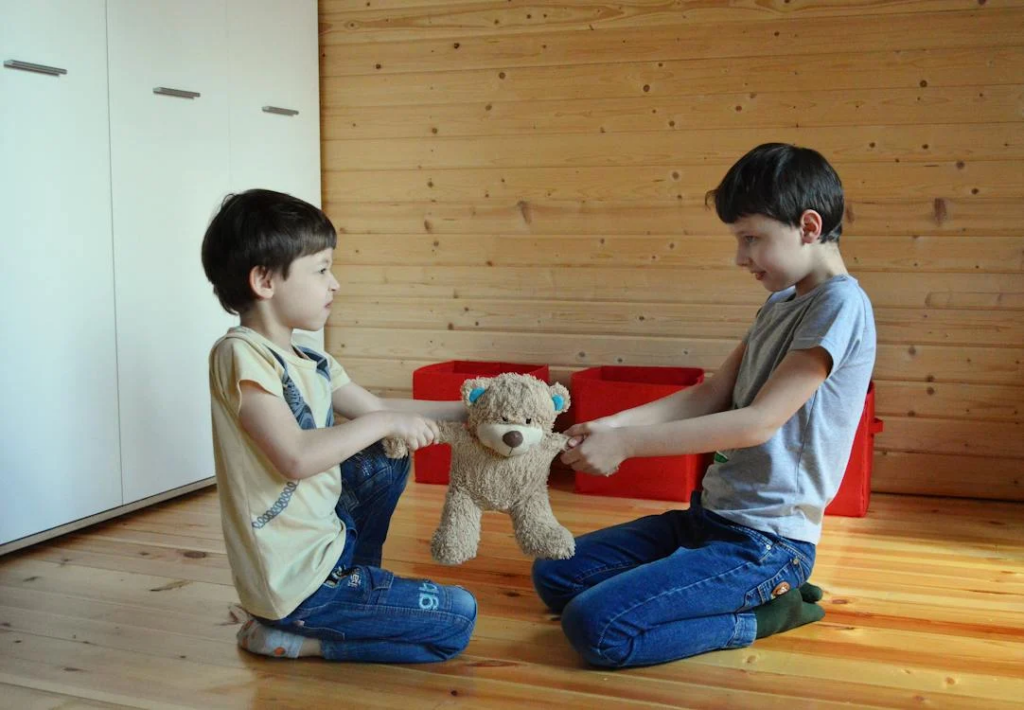"Navigating divorce requires families to adjust communication and parenting styles, with varied impacts on children's lives."

Going through a divorce is a challenging phase for families, not only for the parents to figure out new ways to communicate but also for learning different approaches to parenting. The effects of divorce on children are quite diverse and can vary from one child to another. Let’s dive deeper into this article and examine how divorce can leave its mark on the lives of the little ones in a family.
1. Struggling in School

When parents decide to part ways, it can result in an emotional upheaval for their children, particularly affecting their performance in school. The complex and new circumstances can make it more difficult for children to concentrate on their schoolwork, thus impacting their academic achievement.
This struggle in school is usually not due to a lack of desire to succeed; rather, it is due to how the divorce process might provide distractions and emotions that make it difficult for them to keep on top of their schoolwork.
2. Social Withdrawal

Children might face some difficulties in connecting with friends or forming new friendships. This uncertainty can impact how comfortable children feel in social settings. They might find it a bit harder to open up to friends or make new connections because of the changes happening at home. The concern about their family situation being unique can create a barrier to social interactions, making them feel a little hesitant or uneasy about sharing their experiences with others.
One solution to help children navigate these challenges is by fostering an environment of empathy and understanding at home and school. Encouraging open communication about family dynamics can alleviate the sense of isolation and help children realise that they’re not alone in facing such situations. Try to encourage your children to participate in group activities or clubs that align with their interests. Engaging in such activities fosters natural bonding and helps them form friendships with peers who share similar interests. This can create a supportive network for them beyond just their immediate family. Check out ‘All about Co-Curricular Activities: How to Choose the Right CCA for Your Kids’
3. Emotional Sensitivity

Dealing with emotions after a divorce is a big deal for children. It’s like the whole family is going through a rollercoaster of feelings, and children are right there in the middle of it. They might feel all sorts of things – like they’re missing something, angry, confused, or anxious. It’s a mix of emotions that can be pretty intense.
When these emotions hit, children need a way to let them out. They might need someone to talk to, someone who’s willing to listen, or just a safe space to share what’s going on inside their heads. Having an emotional outlet is important for them to handle all these intense feelings that come with the changes happening in the family.
To support children in managing their emotions, it’s important to offer them diverse outlets for expression and support. Encouraging activities they enjoy, such as art, music, or sports, can serve as healthy distractions and channels for emotional release. These mediums can act as therapy, allowing them to express deep emotions they may not be ready to discuss verbally. Engaging in positive activities also provides distractions and helps them constructively navigate their feelings. Check out ‘Unveiling the Magic of Art Therapy for Kids’ and ‘5 Exciting Sports for Kids and Teens in Singapore’
4. Feeling Guilty

When parents choose to go their separate ways, it can make children wonder why it’s happening, and these thoughts can lead to feelings of guilt as if they did something wrong. It’s a common reaction when families experience a divorce. This sense of guilt isn’t just a small feeling; it often comes with extra challenges, like feeling more pressure, bouts of sadness, and increased stress.
Children might start questioning themselves, wondering if their actions or behaviours somehow caused their parents to split up. This added emotional weight can make the whole situation even more challenging for them to handle.
5. Destructive Behaviour

When parents haven’t solved all their problems and things are still a bit messy after the divorce, it can lead to some less-than-ideal outcomes for children. If children have experienced their parents fighting for many years, they might be more prone to engaging in dangerous behaviour. This includes doing things that are against the law, like getting involved in petty crime or drug use.
Addressing destructive behaviour in children after a divorce requires a comprehensive approach centred on stability and positive reinforcement. Fostering open communication between parents and children establishes a supportive environment where children feel safe expressing their emotions and seeking guidance without fear of judgement. It’s crucial not to criticise them if they exhibit changes in behaviour or make mistakes, as this can worsen the problem.
Implementing positive reinforcement techniques, such as expressing unconditional love and offering rewards for positive choices, can motivate children to make healthier decisions and avoid destructive behaviour. However, if necessary, seeking professional support through therapy or counselling can equip children with the necessary tools and coping mechanisms.
Counselling centres for children and families in Singapore:
- SACAC Counselling
- Annabelle Kids
- Mindful Space
- Dynamics Psychological Practice
- Heart to Heart Psychotherapy
6. Health Problems

The process of divorce can bring a lot of stress, and this stress can affect the health of children. When children experience their parents getting divorced, it might make them more likely to get sick because the stress can make it harder for them to stay healthy.
Things like trouble sleeping can be a part of this, and it all adds up to affect their physical well-being.
Sometimes, when children are feeling sad or down, it can make their health even worse. It’s like a cycle – feeling sad can make them less healthy, and being less healthy can make them feel even sadder, possibly leading to depression.
To address the impact of stress on children’s health, it’s important to take a holistic approach that considers their physical and emotional well-being. Establishing consistent routines and promoting healthy habits like regular exercise and nutritious meals can bolster their immune systems and counteract the detrimental effects of stress on their health. Check out ‘Smart Food Choices for Kids’ During Exams.’ Additionally, teaching stress-reduction techniques such as mindfulness exercises and relaxation methods can empower children to manage their emotions effectively and alleviate the physical strain caused by stress.
7. Loss of Faith in Marriage and Family

Children might lose some trust in the idea of getting married and having a stable family. The experience of their parents separating can shake their belief in the things they thought were supposed to last forever. They begin to wonder if marriage and families can be as strong and reliable as they once believed.
This change in thinking can affect how children view the idea of getting married when they grow up. They might become a bit hesitant or uncertain about the whole idea of marriage because they’ve seen that sometimes things don’t work out the way they expect. The experience of their parents’ divorce makes them approach these ideas with a bit more caution and doubt.
In conclusion, divorce can have a wide-ranging impact on children’s lives, including academic performance, social interactions, and emotional well-being. While the effects of divorce are different for each child, the disruptions can be significant. Parents need to acknowledge these problems and provide their children with the appropriate support, understanding, and a supportive environment to help them get through this difficult phase.
It is recommended that both parents approach the situation with honesty. Sitting down together to calmly share the news of the divorce can help alleviate some of the confusion and anxiety children may feel. Remember to get on the same page before the discussion and avoid arguing in front of them. This could involve reassuring the children that both parents still care and have a united front when it comes to parenting. By prioritising the children’s well-being and maintaining open communication, parents can help their children adapt and thrive despite the challenges of divorce.

Leave a Reply